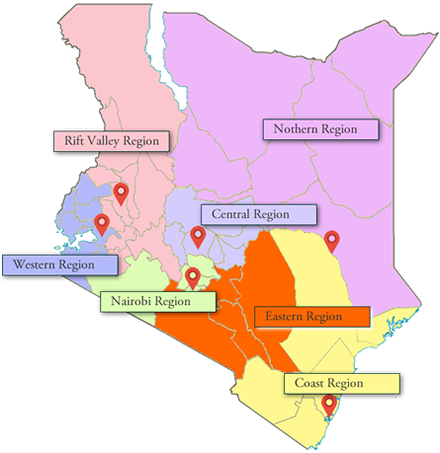
Authority Strengthens Enforcement Efforts Against E-Commerce Counterfeiting Through Training
- News and Events
- Hits: 1092
Nairobi, Kenya – August 21, 2024: The Anti-Counterfeit Authority (ACA), in collaboration with GIZ Trade Kenya, has commenced a two-day training program aimed at bolstering the Authority’s capacity to tackle the growing threat of counterfeit goods in the e-commerce sector. The training, which targets senior management and technical personnel, is designed to equip participants with the requisite knowledge and tools to effectively combat the proliferation of counterfeit goods on digital platforms.
The rise of e-commerce has significantly transformed the global marketplace, creating vast opportunities for economic growth and innovation. However, this expansion has also facilitated the entry of counterfeit goods into the market, leading to substantial economic losses and posing significant risks to consumer safety. It is estimated that counterfeit trade in e-commerce contributes to global economic losses exceeding $500 billion annually, with an increasing number of consumers unknowingly purchasing substandard and potentially harmful products.
Addressing participants at the opening session, the Executive Director of the ACA underscored the critical need for a coordinated and informed response to this pressing issue. He emphasized that "the proliferation of counterfeit goods in e-commerce represents not just a national concern but a global challenge that necessitates robust international collaboration. Through strategic partnerships with development organizations such as GIZ Trade Kenya, we are better equipped to share intelligence, harmonize enforcement strategies, and fortify the global network of agencies dedicated to curbing this menace."
The training program is designed to address the multifaceted challenges posed by counterfeit goods in the digital space. Key topics include an analysis of the World Trade Organization (WTO) Agreement, the utilization of international databases for monitoring counterfeit activities, and the implementation of contemporary enforcement measures such as the recordation system. This system, which enables brand owners to register their trademarks with customs authorities, has proven to be an effective tool in intercepting counterfeit goods at points of entry. Its application within Kenya's enforcement framework is anticipated to significantly enhance the country’s capacity to combat counterfeiting.
Dr. Mbugua highlighted the ongoing challenges posed by the anonymity and expansive reach of digital platforms, which continue to provide counterfeiters with avenues to operate with relative impunity. Studies reveal that approximately 20% of all products sold online in certain sectors, including electronics and pharmaceuticals, are counterfeit, underscoring the need for continuous vigilance and the adoption of innovative enforcement techniques.
Dr. Mbugua further noted that the Authority is at the forefront of reviewing the current legal and regulatory framework to better protect consumers and trademark owners from online counterfeiting. “The current laws were crafted in a brick-and-mortar environment devoid of consideration of bad actors exploiting e-commerce platforms to sell counterfeit products. There is, therefore, a need to adapt to the shift in technology.”
The GIZ Pan-African E-Commerce Initiative (PeCI) Regional Development Advisor Ms. Jennifer Chiku, emphasized that GIZ is working with both public and private sector players to build capacity and enhance fair markets, as well as best practices for combating counterfeiting and addressing emerging issues in online counterfeiting.
The collaboration between the ACA and GIZ Trade Kenya reflects a shared commitment to protecting the public from the dangers of counterfeit goods and ensuring the integrity of Kenya's economic landscape. The ACA expressed its appreciation to GIZ Trade Kenya for their unwavering support, noting that this partnership has been instrumental in facilitating this essential training program. This initiative represents a significant step forward in Kenya's ongoing efforts to mitigate the threat of counterfeit goods in the e-commerce sector, thereby safeguarding the nation’s economic interests and public welfare.




